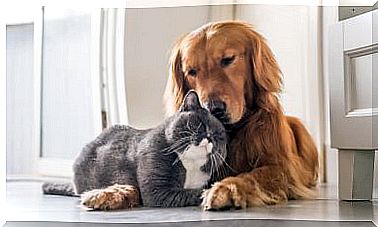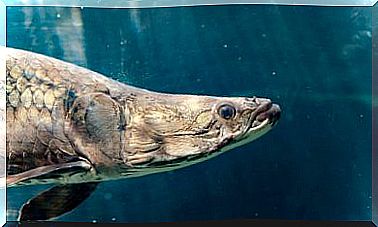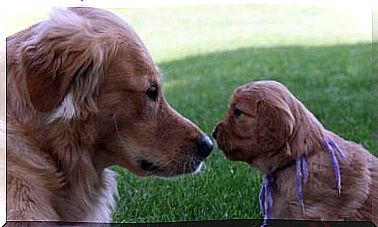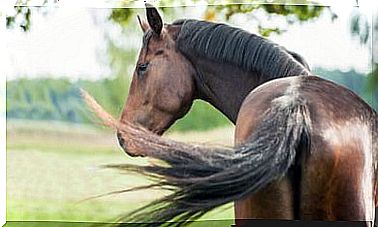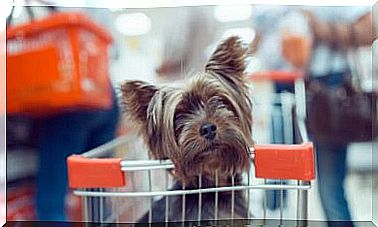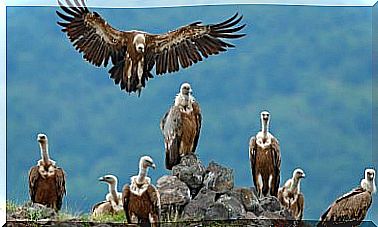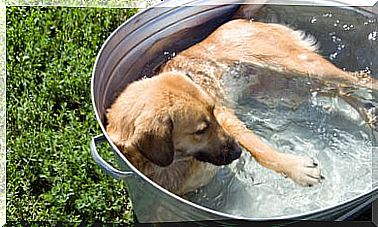6 Essential Components For Your Dog’s Diet

If your pet is well fed, it will feel healthier, stronger and happier. It’s as simple as that. But many times we do not know what main components must be present in the dog’s diet to pamper and care for it properly. In this article we will tell you about it.
The necessary nutrients in the dog’s diet
When we buy feed from our dog, we believe that all food and nutritional needs are covered, although this is not so. We must take into account what the animal’s diet requires when offering food:
1.Proteins
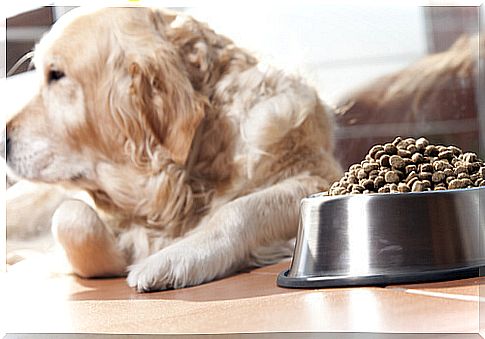
They are essential components for cells and for building or regenerating tissues. In turn, they are very important in building enzymes and hormones as well as antibodies to keep you from getting sick.
Puppies require more protein than adults in their diet (with the exception of females when they are pregnant and when nursing their young). This nutrient is “lost” through feces, urine and hair. The main sources of protein for dogs are meat and cereals.
When there is a protein deficiency, the dog will not grow properly, it will lose weight, it will have “dull” hair, it will get sick more often and it will not feel an appetite.
2 fat
They are not the bad guys in the movie if ingested in adequate amounts. It is a great source of energy that also provides fatty acids, which are used to synthesize prostate glands and build cell walls.
Corn oil mixed in the feed is an excellent source of Omega 6 fatty acids (the lack of which results in dandruff, skin lesions, dry hair and decreased fertility). Keep in mind that if your dog exercises a lot, he will need more fats, beneficial for the heart in particular and the other organs in general.
3 carbohydrates
There are three types of carbohydrates in food: starches, sugars, and polysaccharides. As with fats, if they are consumed in adequate amounts, they are very good for your health. They are used to prevent constipation, obesity and diarrhea, retain water in the body (as if they were sponges) and interact with other nutrients such as minerals to increase their properties.
Elderly, sick, sedentary dogs or pregnant and lactating females need a diet with a higher amount of carbohydrates.
4.Water
Not only the liquid that they can drink but also the one included in the food. Puppies are made up of 80% water and adults 60%.
It is one more nutrient and it should not be neglected, since its lack can cause very serious problems and even death. It is known that a dog can lose up to 40% of its body weight by not eating but only 10% by not drinking.
Water regulates body temperature, eliminates waste through urine, helps with digestion and blood transport, among other advantages.
5.Vitamins
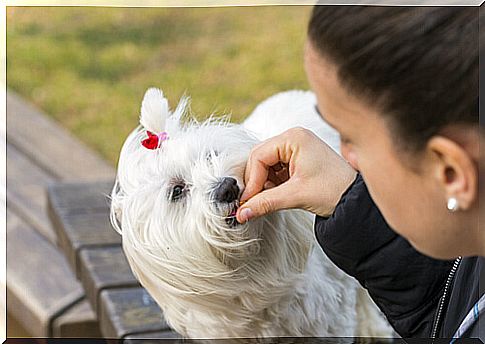
Of course they are necessary for the daily life of the animal, both for its health and for its vital functions. The only vitamin that can be synthesized by the dog is C. The others must be supplied from food and in the case of D it gets it when it is lying in the sun.
Each of the vitamins has specific functions. For example A repairs tissues and improves vision; D is related to the skin and the immune system and E is involved in reproduction and the circulatory system.
6.Minerals
They are present in almost all foods, for this reason it is not common for there to be a deficit of them. In addition, they are required in small quantities, although they are not less important for that.
Among the minerals most used by the dog we find calcium (for the formation of bones, muscles and nerves), iron, phosphorus, magnesium, potassium (intervenes in the balance of water) and zinc (participates in digestion ).
Finally, we cannot forget about dietary fiber, which helps in digestive processes and is found in vegetables and cereals. Its deficit causes constipation.
